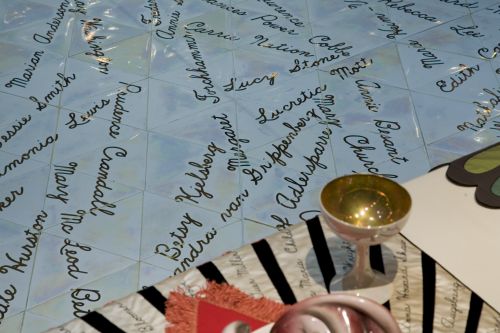Aphra Behn
b. 1640, possibly Harbledown, Kent, England; d. 1689, London
Behn’s early life is obscure. Around 1663, she accompanied her family to the new English colony of Surinam, where she may have operated in an intelligence capacity for the court. Two years later, she was recruited by Charles II for espionage work in the Netherlands under the code name Astrea, which became her nom-de-plume as a writer. Somewhere along the way, she married and quickly shed a husband named Johann Behn. By 1670, she had embarked on a remarkable career as a playwright and over the next decade turned out at least nineteen works for the stage, many of them sex comedies. She became associated with the notorious libertine John Wilmot, earl of Rochester; her poems written during this period are some of the most sexually explicit written by a woman, and bisexual themes run through her work. Behn also wrote several novels; the most famous, Oroonoko (1688), earned her an enduring place in the literary canon. Behn’s work, like that of her younger contemporary Mary Astell, combines contradictory impulses. She flouted gender and sexual conventions but at the same time was an unreconstructed Tory and slavish proponent of a corrupt king.

Related Place Setting
Related Heritage Floor Entries
- Maria Agnesi
- Marianna Alcoforado
- Anna Amalia
- Anne Askew
- Mary Astell
- Laura Bassi
- Anne Baynard
- Helen Cornaro
- Isabela Czartoryska
- Anne Dacier
- Maria de Agreda
- Luisa de Carvajal
- Marie le Jars de Gournay
- Bernarda de la Cerda
- Marie de Miramion
- Luise Gottsched
- Jeanne Marie Guyon
- Susanna Lorantffy
- Bathsua Makin
- Lucretia Marinelli
- Charitas Pirckheimer
- Bridget Tott
- Barbara Uttman
- Glueckel von Hameln
- Hortensia von Moos
- Maria Antonia Walpurgis
- Hannah Woolley